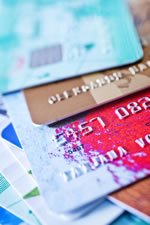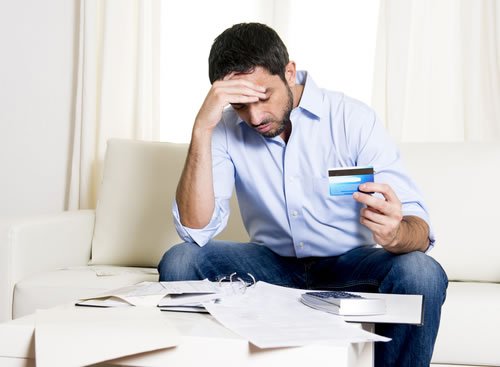If you are a high income earner, it is less likely that you will qualify for a Chapter 7 bankruptcy. But what happens if you have credit card debts and fail to qualify for a Chapter 7? It is common knowledge that Chapter 7 eliminates all legally dischargeable unsecured debts completely. What happens to unsecured debts like credit card debt under a Chapter 13 bankruptcy?
As with Chapter 7, a Chapter 13 bankruptcy filing brings the automatic stay into effect. This means that creditors can no longer attempt to harass you while trying to collect. The protection of the automatic stay remains throughout the repayment plan and is eventually replaced with a permanent discharge injunction. Thus filing for Chapter 13 essentially freezes your credit card debt and prevents it from growing larger.
What Happens to Credit Card Debt?
 Now to the question of what happens to your credit card debt. Are you required to pay it off in full? It is a common misconception that a Chapter 13 repayment plan requires a debtor to pay off all debts in full. Under a Chapter 13 repayment plan, some debts are paid off in full, some in part, and some not at all. The amount repaid for each debt depends on the priority of the debt. Not all debts are the same. Under bankruptcy law, debts are segregated into three types: secured debts, priority unsecured debts, and general unsecured debts.
Now to the question of what happens to your credit card debt. Are you required to pay it off in full? It is a common misconception that a Chapter 13 repayment plan requires a debtor to pay off all debts in full. Under a Chapter 13 repayment plan, some debts are paid off in full, some in part, and some not at all. The amount repaid for each debt depends on the priority of the debt. Not all debts are the same. Under bankruptcy law, debts are segregated into three types: secured debts, priority unsecured debts, and general unsecured debts.
Secured debts are loans that are secured with property such as a car loan or a house mortgage. Under chapter 13, if you want to keep your property, you will need to pay the loan arrearage in full. Priority unsecured debts are debts not secured by any collateral, but are still nondischargeable under bankruptcy laws. These include IRS taxes, child and spousal support, and employee wages. In a Chapter 13 plan, secured debts and nondischargeable unsecured debts are given priority and need to be paid back in full. In terms of priority, unsecured debts like credit card debts occupy the bottom rung of the ladder and the amount that is paid back depends upon a number of other factors.
How Much of the Credit Card Debt Needs to be Paid Back?
How much of the credit card debt you need to pay back depends mainly on your disposable income. Disposable income is the amount left behind after allowed monthly expenses are deducted from the available monthly income. This disposable income is used to first pay off the priority debts and if there is anything remaining, it goes towards paying off unsecured debts. As a general rule, the more disposable income you have, the more the percentage of credit card debt you have to pay back. In most Chapter 13 cases, the credit card debt usually paid off amounts to pennies on the dollar, i.e. you end up paying much less that what you originally owed. At the end of the Chapter 13 repayment plan, if any unsecured debt remains, it is permanently wiped away just as if you had filed a Chapter 7 bankruptcy.
A Chapter 13 repayment plan can also mean freedom from the ever increasing burden of paying off the outrageous interest rates that are associated with credit cards, especially the higher rates that go into effect if you are late with payments. Even if your income is so high that you are required to pay off the credit card debt, the amount you pay is based on what you owe at the time the bankruptcy if filed. Generally, no additional interest or penalties are added. As you can see, even credit card debt can be restructured in a Chapter 13 bankruptcy.
Sawin & Shea Bankruptcy Attorneys
If you are struggling with credit card debts, and are contemplating a Chapter 13 bankruptcy, contact one of our experienced Indianapolis bankruptcy lawyers today at Sawin & Shea. We will give you a free evaluation of your case and help you deal with any kind of debt that you may have.



